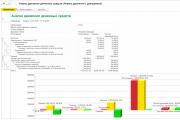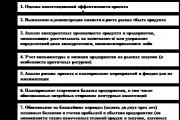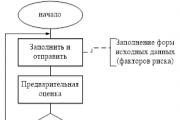When you decide to get a dog, a huge number of questions arise, and one of the first is: what age should the puppy be? Is it better to take a small baby for whom you will become a mother, or a grown-up dog trained to the toilet and basic commands? First you have to ask the question: why are you getting a pet? For the hobby, for breeding a breed, visiting exhibitions, or are you interested in their special qualities (hunting, searching, etc.)?
Legal side of the matter
According to the law, in nurseries, puppies are issued passports at 1.5 months (45 days). By this age, babies are already starting to eat complementary foods, that is, they are becoming viable in the process of survival. It is then that specialists inspect the chicks to determine their compliance with the breed, breeding value, and exhibition requirements. At this age, tail creases, malocclusion, color defects and other “deviations” from the norm are already visible. From this moment on, the official sale of puppies is allowed. But this does not mean that they are ready for independent life.
A dog is like a friend
If you get a dog primarily for yourself, then the main thing should be its physical and psychological readiness.
The first month after birth, the kitten feeds on its mother’s milk, so you should not take it away at this stage, since the basis of its future health is being formed. In dogs, as in the entire animal world, it is breastfeeding that provides strong immunity for later life and will help avoid problems with the gastrointestinal tract and a tendency to allergies.
Yes, by one and a half months the baby can already eat on his own, but during this period his first socialization occurs. At the age of 3-7 weeks, in communication with his mother, he perceives himself as a certain type of animal, which will subsequently facilitate his relationships with other dogs. By two months, he masters body language, the rules of communication with fellow animals, the laws of hierarchy, learns to bark, bite, fight, which makes him psychologically healthy.
At two months the kitten receives its first comprehensive vaccination. Without it, he can become seriously ill, so it is important to wait until the first vaccination and the recovery period after it (usually a two-week quarantine).
Therefore, it is better to adopt a puppy at the age of 2.5-3 months. At this point, he is ready for a new life for himself. He can already be taken out for walks; he is accustomed to a certain regime and diet. He is easy to train and open to communication.
Is it possible to adopt a puppy older than 3-4 months?
There is a misconception that the older the puppy, the harder it is for him to get used to his new owners. No, an older dog is accustomed to following a large number of commands, going to the toilet, behaving at home and on the street, and has a stable digestive system. For those inexperienced in raising dogs, this will make it easier to get used to the pet. You should also know that a puppy is any dog under one year old. Small breeds mature faster, large breeds mature later. A grown-up one-year-old puppy also quickly adapts to a new family and your requirements. Often the last puppies from a litter are the best in quality, so their owners do not put them up for sale at a young age.
Dog for breeding and other purposes
If you plan to have offspring or show a dog, then it is better to take an older puppy, 4 months old, and sometimes one-year-old. On the one hand, a four-month-old dog already has a clear character and is easy to train. And it can already be submitted to the exhibition. By performing until junior age (9 months), the dog learns not to be afraid of the ring, noise, other dogs, and gets used to unfamiliar crowds and many dogs. On the other hand, her final breeding qualities are formed closer to a year: for example, the correct bite in a two-month-old baby does not guarantee that after a change of teeth, which ends by 7-9 months in large dogs and by 10-11 months in small ones, everything will be OK. By the same age, hereditary diseases can also be identified, for example, cryptorchidism, hip dysplasia. At the age of one, it is already possible to judge any exhibition prospects, and, as a rule, breeders already begin training the dog, accustoming it to a show leash (a special show leash). Although it is clear that such a specimen will cost more than the same one, but in 2-4 months, it will be a help to the owner who is not experienced in dog shows.
If you are getting a dog for another purpose, you want it to guard the house, hunt, etc., then in this case you need to follow the same recommendations as for ordinary puppies. They also get used to new conditions, people, primary training both at two months and at six months of age. But special skills, as a rule, are taught to already matured individuals with an established psyche and established character in order to avoid danger to others and the owners themselves.
Things to remember
If you take a dog without documents, you should examine the offspring yourself (absence of hernia, discharge from the eyes, nose, etc., bald spots on the coat, condition of the teeth, bite, anal glands), the condition of the mother (she should not look emaciated, unhealthy), her veterinary passport (were vaccinations done on time), growing conditions. Observe the puppy’s activity, its reactions, and movements.
In the first days in a new environment, the baby experiences stress, so it is better to provide him with a secluded, limited space. You need to give him time to get used to it and not bother him with excessive manifestations of your feelings. The puppy’s stomach actively reacts to any changes in the diet, so at first you need to give the food that he is used to, and according to the schedule that has developed in the breeder’s house. A new food, the quality of which should not be inferior to the previous one, must be introduced gradually, mixing it with what the pet readily eats.
By excessively indulging the whims and whims of a new family member, you can form a psychological dependence on the owner and problems with socialization with relatives, so be smart in your upbringing.
The main thing is not at what age to adopt a puppy, but that if you surround it with love and care, it will quickly become a family favorite, an obedient and devoted friend.
This question cannot be answered unequivocally and must be resolved in each specific case separately, depending on the circumstances. Let's look at the pros and cons of the different options.
An option is to adopt a small puppy aged one month. The only advantage of this option is that perhaps you will buy a puppy a little cheaper, because the breeder has not yet had time to spend money on feeding, and also that all the puppies are still there and you will choose from the entire litter, but this is only important if you understand in this breed or take a specialist with you. Otherwise, this option has only disadvantages: you will have to protect him from contact with the outside world until vaccinations, because the immunity that he received with his mother’s milk is no longer there. You will also have to do your puppy's vaccinations yourself. What is especially bad is that at this age it is very difficult to determine the character of a puppy. The selection process does not take much time, and the puppy, when you examine the litter, may behave completely differently from how it usually behaves. Determining the puppy's character is especially important if the dog is taken for subsequent training and work.
The second option is to adopt the puppy “on time”. Clubs examine puppies at 45 days of age and give permission for sale and documents, at the same time, most modern vaccines are also used from 45 days, and again at the age of 45 days, most bitches no longer have milk at all, and they completely stop feeding the puppies. Accordingly, the age of 45 days can be considered optimal for starting the sale and purchase of puppies. The advantages of buying a puppy at this age are that the puppies should already be vaccinated, so the risk of disease is minimal, the puppy is already fully feeding on its own. The only drawback is that it is difficult to accurately determine the character of a future dog at this age; you can, of course, cull clearly cowardly and unconfident puppies, but it’s still very early to talk about protective qualities at this age.
The third option is to buy a fully grown puppy at the age of 4-6 months. The option is good from all sides: the puppy is already almost an adult dog, and the external characteristics are already visible, and the character can be checked, and the change of teeth has almost occurred. There is one “but”, the question arises: why is the puppy being sold at this age? after all, no one will specifically raise a puppy, investing a lot of money and their labor into it, despite the fact that the price of a puppy practically does not depend on age, and two-month-old puppies and six-month-old puppies cost the same. There are not many options for answering this question, either the puppy has “stayed too long” and this usually means that it is not of very good quality, or the breeder deliberately held back the puppy for some reason. When buying a puppy at this age, it is advisable for you to get an answer to this question, and if this answer satisfies you, then you can safely take such a puppy.
At what age would I recommend getting a puppy? If you are not an expert in dog breeding and are not going to attract a specialist to help, then take a puppy at the age when puppies are usually sold, that is, at 1.5-3 months, and preferably in litters where you can choose from at least 2-3 puppies. However, if you are taking a dog that you plan to use for working purposes, protection and security, hunting, etc., then the older the puppy you buy, the better for you, you can check if it has all the necessary qualities needed for the intended work.
To your home? It turns out that the question is not at all easy. The minimum age is 45 days. After this, documents are made for the puppy and he can be taken home. You can take a one-month-old puppy, but then get ready to become his mother: sleepless nights, very frequent complementary feeding, calming, and so on. Let's discuss everything in more detail, since even breeders do not have a common opinion on this issue.
Let's start with what size puppy you want. For example, if it is a small breed, then you should wait until about 2 months. It will be very easy to pinch such a little thing. What if she gets sick? The older the puppy, the lower the risk of contracting any disease.
Time of administration complementary foods also different. For example, a German Shepherd can start complementary feeding at 2 weeks. And for other breeds later.
Vaccinations. If you want to leave this unpleasant procedure to the breeder, take the puppy closer to 4 months and be sure to make sure that all vaccinations have been completed. If you are ready to take on some part of the vaccinations yourself, then try not to be present at the slightly painful and unpleasant procedure. The puppy will probably draw an analogy with you and the troubles you caused.
Health. The more the puppy stays with its mother's milk, the stronger its immunity will be. It's like with human children. Purebred dogs are not so strong in this area and sometimes the death of the puppy is possible. Therefore, in order to save yourself from worry, it is better to wait a little until the puppy grows up near its mother. In one and a half months you will see what kind of teeth the dog will have and what the bite will be like. This assessment will be important if you want to participate in exhibitions.

Socialization. If you take the puppy lightly after 2 months, then he will already be socialized. The puppy, in playing with his brothers and sisters, will acquire basic skills: he begins to bark, bite, regulate the force of his bite, learns body language, and accepts hierarchy. It is from three to seven weeks that the puppy learns to relieve itself and trains its natural instincts (this includes hunting and sexual behavior). And you, for your part, teach your pet the rules of your home. I don't recommend waiting too long either. According to experts, after four months the puppy has a period when he chooses an owner for life. Nobody knows when this period will come. It is for this reason that try not to give the puppy up to a year to anyone, even for a short time.
If you decide to breed and participate in exhibitions, it is recommended to take a mature puppy when its exterior and character are visible.

And if you decide to take adult dog? This can be done by a person who already has experience in keeping dogs. An adult dog is already a person who was not raised by you. She has her own habits and gaining authority from an adult dog will not be easy. My husband and I once adopted a one-year-old dog, and our experience tells us that we won’t do that again. Think about the reason why the breeder has not sold this dog yet. Of course, there are many reasons:
- the dog breed is not popular;
- currently low season (summer);
- not very good care for the puppy;
- bad advertising and many other reasons.
P.S. When you take the puppy home, take with you something that smells like his mother (a piece of bedding). Then it will be easier for your baby to adapt to a house that is still foreign to him. Experienced dog breeders also advise wrapping the ticking alarm clock in a towel and placing it next to the baby. This will imitate the mother's heartbeat.
Buying a dog is an important and responsible step in the life of every person. Before adopting or buying a puppy, you need to answer several questions for yourself, such as the purpose of the pet, the financial aspect, free time to raise the puppy, etc.
The future owner must have a clear idea of what he will have to face when choosing a particular breed of dog, as well as the age category of the animal. The care and maintenance of a one-month-old and one-year-old puppy will be very different. There are several points that you should pay attention to and carefully study before purchasing a puppy.
Vaccinations and other preventive measures
When considering the best age for a puppy to go to a new family in terms of preventative procedures, you should know that a dog under 4 weeks old cannot yet be vaccinated. Therefore, if breeders claim that the puppy has already been vaccinated and provide the appropriate documents, then we can confidently say that this is a hoax. Up to 4 weeks, the baby has only colostral immunity received from mother's milk.
The first vaccination is usually given at 6 weeks. It includes canine distemper and parvovirus enteritis. This vaccine is created exclusively for these small puppies to protect them from diseases that are fatal to them. It is mandatory for nurseries or shelters where these diseases have been recorded.

It is ideal if the breeder teaches the animal from an early age to cut its nails, clean its ears, comb its fur, visit a veterinary clinic and communicate with a doctor without aggression. This will make the future life of the future owner much easier.
As a result, if we take into account the protection of the future pet from dangerous diseases, then the best age to purchase a dog would be 3.5 months, since after the last vaccination you must undergo a quarantine of 2 weeks.

Feeding
Up to 35 days, babies feed exclusively on mother's milk. It contains an optimal complex of vitamins, minerals and immunoglobulins. Ready-made formulas or cow's milk will never meet the needs of a puppy's body as much as bitch's milk. Subsequently, an animal separated from its mother early will suffer from allergies to many foods, have problems with the gastrointestinal tract, and often suffer from infectious diseases.

If life circumstances have left the baby without a mother, then it is important to pay special attention to his nutrition. Puppies up to a month eat every 3-4 hours, including at night. It is important to choose a bitch milk substitute that is ideal for your dog.
Pet stores offer a wide range of ready-made mixtures, but it is better to consult a veterinarian rather than a pet store employee regarding quality and composition. Sometimes veterinarians recommend adding probiotics to the formula or adding a vitamin complex containing calcium. After 35 days, food or products that the owner plans to feed the animal for the rest of its life begin to be introduced into the baby’s diet. When it comes to food, it is also important to choose a good quality product. For the first time, it is advisable to purchase soft food; it will be easier for the baby to eat it.
Based on this information, if the baby is not left without a mother, then adopting a puppy before 35 days of age is contraindicated.
Upbringing
Often, unscrupulous breeders offer to buy one-month-old puppies, citing the fact that the puppy is no longer suckling from its mother and during this period it is easiest to raise a dog for yourself. However, at this age the process of socialization of the animal is not yet completed. A dog teaches its offspring how to care for itself, relieve itself in a designated place, bite force, vocal signs and body language, hunting, etc. Babies, through play and repetition after their mother, learn skills that a person cannot fully teach.
If you plan to raise a dog to become a prize-winner of many exhibitions, a world champion and a parent of highly paid offspring, then it is better to choose a dog that is at least 8 months old. By this age, the animal usually looks like an adult. There is no need to guess what size and constitution it will grow to be. Also, by this age it is usually possible to diagnose genetically inherited diseases, such as hip dysplasia. Animals with such diseases are rejected from breeding, which means all hopes and dreams of titles will disappear into oblivion. You should also study the parents’ health documents and the veterinarian’s conclusions about the absence of genetic diseases.

By 4 months, the dog has already developed its future character and basic habits.. Ideally, the breeder begins training with a dog handler, aimed at passing exhibitions, already at this age. It is good if the puppy knows what a leash and muzzle are and does not resist wearing them. The new owner will simply need to not neglect the acquired skills and continue training the pet. It is important to ask in what conditions the puppy lived all his life, what he ate, how he communicates with other animals and children. With this information, it will be easier to create a similar environment for your new pet to reduce the stress of the move. There will also be no surprises when children or other animals appear in the new family.
This means that to make raising a dog easier, it is ideal to take a puppy from 4 months and older.
Conclusion
Having studied all the aspects presented above, it turns out that it is best to purchase a puppy in 3.5-4 months of age, when all planned preventive measures have been carried out, the dog has received basic skills from its parents and is accustomed to certain foods.
Many who want to get a dog wonder what age a puppy should be to make it easier for him to adapt and get used to his new home and owners. But there are several answers to this question. It all depends on many conditions and circumstances. Let's look at the advantages and disadvantages of each of them.
One month old puppy
Many people consider this option the most correct, and buy a puppy at this age. But in reality, purchasing a puppy that is one month old is not the best idea. The only advantage of this choice is that you won’t have to overpay for a puppy. After all, the breeder has not yet spent a lot of money on feeding the dog.
Another advantage is that, as the first buyer, you will be able to choose a puppy from others. But this is important for those who are specialists and want to buy a puppy that meets the standards more than others. If you do not understand the breed, but want to purchase a high-quality representative, you should take with you a specialist who will give advice. This is where the benefits of purchasing a one-month-old puppy end.
Let's consider the disadvantages of this option:
- A puppy who stops drinking milk will have very low immunity. Until you give him all the necessary vaccinations, the dog will have to be protected from any interaction with the environment. In addition, all responsibility for vaccinations falls on your shoulders.
- Another major disadvantage is that at this age you will not be able to determine what kind of character the dog will have as an adult. When a buyer chooses a puppy, it may behave completely differently than usual. In addition, character can change significantly with age. Determining the dog's character is very important, especially if you plan to use it in work.
Age 45 days
This option is preferable to the first one. After all, it is at this age that clubs examine representatives of the breed. Puppies are allowed for sale. Most vaccinations are given at this age, so there is a high chance that you will buy a dog that has already been vaccinated. You don't have to protect her from the outside world and then take her to all the necessary vaccinations. Another point is that at this age puppies begin to switch to independent feeding, as the bitches stop feeding them milk.
There will be only one drawback here. The character of a dog at the age of one and a half months is still very difficult to determine. You can only understand whether the dog will be too cowardly or insecure. But, if you plan to use him as a security guard or for some other work, then determining his makings will still be difficult.
Age 4 to 6 months

This option is considered the most suitable. By this time you will have an almost fully grown, mature dog. The external characteristics of the puppy will be clearly visible. In addition, by this age the dog should already have replaced all its teeth.
If you are choosing a dog for work, then this option will be most preferable. After all, you will have the opportunity to determine the character of the dog.
But this option has its pitfalls. When you come to a seller and he offers you a dog that will soon be six months old, the question inevitably arises as to why no one has bought it yet. The thought arises that there is no point in raising and feeding a puppy for so long. After all, it won’t be possible to sell it for more. Prices for puppies of two months and four months of age are practically the same. There may be several answers to this question. Perhaps no one bought the dog because it has certain shortcomings. This may be due to external signs or character traits. If shortcomings are not a problem for you, then you can easily buy such a dog. If you need it for work, or you want to take part in exhibitions in the future, then you should approach the choice more critically and ask why the dog has not yet been purchased. It happens that a dog has no flaws. The owner can simply hold it back for personal reasons. Conclusion
If you are not a specialist and do not intend to use the dog for breeding, work or exhibitions, then you can buy a puppy at about the age of one and a half to three months. Pay attention to the litters where there are options to choose from. In any case, you should not buy a dog that is too small.
If you plan to train the dog and then use it for work, pay attention to older dogs, from which you can determine the character traits and inclinations necessary for a particular job.
Video: at what age should you get a dog?























